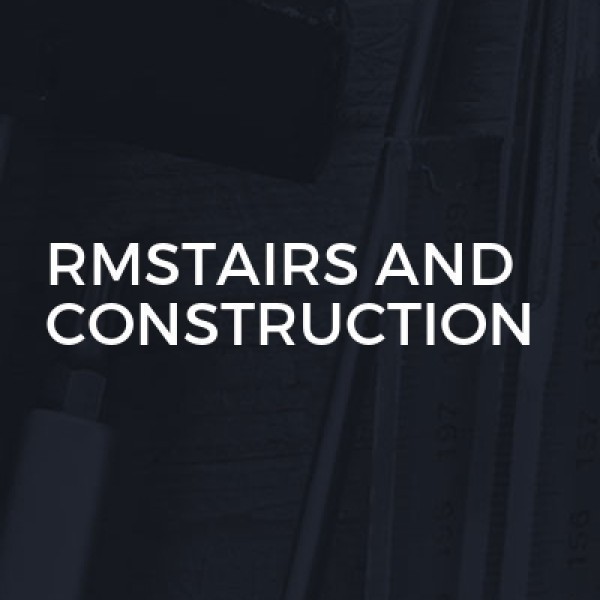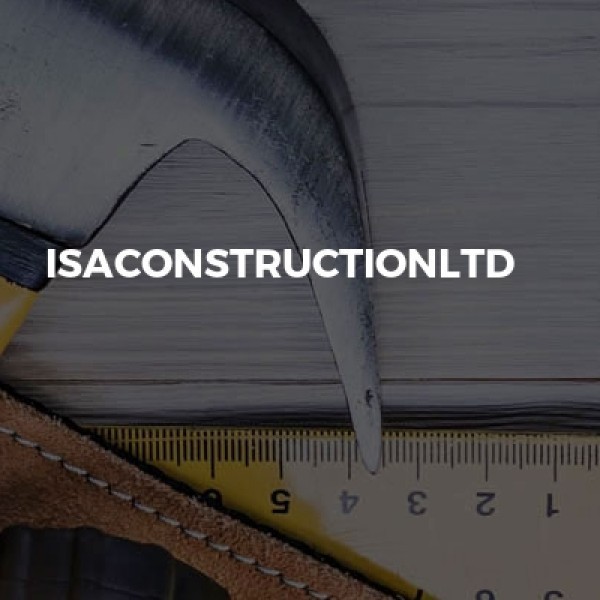Property Refurbishment in London
Filter your search
Post your job FREE and let trades come to you
Save time by filling out our simple job post form today and your job will be sent to trades in your area so you can sit back, relax and wait for available trades to contact you.
Post your job FREESearch Property Refurbishment in London by borough
- Property Refurbishment in Barking & Dagenham
- Property Refurbishment in Barnet
- Property Refurbishment in Bexley
- Property Refurbishment in Brent
- Property Refurbishment in Bromley
- Property Refurbishment in Camden
- Property Refurbishment in City of London
- Property Refurbishment in Croydon
- Property Refurbishment in Ealing
- Property Refurbishment in Enfield
- Property Refurbishment in Greenwich
- Property Refurbishment in Hackney
- Property Refurbishment in Hammersmith & Fulham
- Property Refurbishment in Haringey
- Property Refurbishment in Harrow
- Property Refurbishment in Havering
- Property Refurbishment in Hillingdon
- Property Refurbishment in Hounslow
- Property Refurbishment in Islington
- Property Refurbishment in Kensington & Chelsea
- Property Refurbishment in Kingston upon Thames
- Property Refurbishment in Lambeth
- Property Refurbishment in Lewisham
- Property Refurbishment in Merton
- Property Refurbishment in Newham
- Property Refurbishment in Redbridge
- Property Refurbishment in Richmond upon Thames
- Property Refurbishment in Southwark
- Property Refurbishment in Sutton
- Property Refurbishment in Tower Hamlets
- Property Refurbishment in Waltham Forest
- Property Refurbishment in Wandsworth
- Property Refurbishment in Westminster
Understanding Property Refurbishment in London
Property refurbishment in London is a thriving industry, offering homeowners and investors the opportunity to enhance the value and functionality of their properties. Whether you're looking to modernise an old Victorian terrace or upgrade a contemporary flat, refurbishment can breathe new life into any space. In this article, we'll explore the ins and outs of property refurbishment in London, providing you with a comprehensive guide to navigate this exciting journey.
The Importance of Property Refurbishment
Refurbishing a property isn't just about aesthetics; it's about improving the overall quality and value of a home. In a bustling city like London, where property prices are consistently high, refurbishment can significantly increase a property's market value. Moreover, it can enhance living conditions, making homes more comfortable and energy-efficient. By investing in refurbishment, homeowners can enjoy a more functional and appealing living space while also potentially increasing their property's resale value.
Key Considerations Before Starting a Refurbishment Project
Before diving into a refurbishment project, it's crucial to consider several factors. First, establish a clear budget to avoid overspending. Next, understand the scope of the project—whether it's a full-scale renovation or minor upgrades. It's also essential to research local regulations and obtain necessary permits, as London has specific planning laws that must be adhered to. Lastly, consider the timeline and potential disruptions, especially if you plan to live in the property during the refurbishment.
Setting a Realistic Budget
Creating a realistic budget is a cornerstone of any successful refurbishment project. Start by listing all potential expenses, including materials, labour, permits, and unexpected costs. It's wise to allocate a contingency fund, typically around 10-15% of the total budget, to cover unforeseen expenses. By having a clear financial plan, you can ensure the project stays on track without compromising on quality.
Understanding Local Regulations and Permits
London's rich history and diverse architecture mean that many properties are subject to specific regulations. Before starting any refurbishment, check if your property is listed or located in a conservation area, as this may affect what changes you can make. Obtaining the necessary permits is crucial to avoid legal issues and potential fines. Consulting with a local planning authority or a professional can provide clarity and guidance on these matters.
Choosing the Right Professionals for the Job
Hiring the right professionals can make or break a refurbishment project. From architects and interior designers to builders and electricians, each plays a vital role in bringing your vision to life. When selecting professionals, consider their experience, reputation, and previous work. It's also beneficial to seek recommendations from friends or family and read online reviews. A good team will not only execute the project efficiently but also offer valuable insights and suggestions.
Architects and Designers
Architects and designers are instrumental in the planning phase of a refurbishment. They help translate your ideas into feasible designs, ensuring that the space is both functional and aesthetically pleasing. When choosing an architect or designer, look for those with experience in similar projects and a portfolio that aligns with your style preferences.
Builders and Contractors
Builders and contractors are responsible for the physical execution of the refurbishment. It's crucial to hire reputable professionals who are known for their quality workmanship and reliability. Ensure they are fully insured and have the necessary qualifications. A good contractor will provide a detailed quote and timeline, keeping you informed throughout the project.
Popular Refurbishment Trends in London
London's property market is dynamic, with trends constantly evolving. Currently, there is a strong focus on sustainability and energy efficiency. Homeowners are increasingly opting for eco-friendly materials and technologies, such as solar panels and energy-efficient windows. Open-plan living spaces remain popular, as they create a sense of spaciousness and flow. Additionally, smart home technology is on the rise, with features like automated lighting and heating systems becoming more common.
Sustainable and Eco-Friendly Upgrades
Sustainability is at the forefront of modern refurbishment projects. Many London homeowners are choosing to incorporate eco-friendly materials, such as reclaimed wood and recycled metal, into their designs. Energy-efficient appliances and insulation are also popular choices, helping to reduce energy consumption and lower utility bills.
Open-Plan Living Spaces
Open-plan living spaces continue to be a sought-after feature in London homes. By removing walls and creating a seamless flow between rooms, these spaces offer a modern and airy feel. They are particularly popular in smaller properties, where maximising space is essential. Open-plan designs often include multifunctional areas, such as kitchen-diners or living room-offices, catering to the diverse needs of modern families.
Challenges and Solutions in Property Refurbishment
Refurbishing a property in London comes with its own set of challenges. From dealing with unexpected structural issues to navigating planning permissions, it's essential to be prepared for potential hurdles. However, with careful planning and the right team, these challenges can be overcome.
Dealing with Structural Issues
Older properties, in particular, may present structural challenges during refurbishment. Issues such as damp, subsidence, or outdated wiring can arise, requiring professional assessment and repair. Conducting a thorough survey before starting the project can help identify these issues early, allowing for appropriate solutions to be implemented.
Navigating Planning Permissions
Obtaining planning permissions can be a complex process, especially in a city like London with its stringent regulations. It's crucial to understand the requirements and submit detailed plans to the local authority. Engaging a professional with experience in navigating these processes can streamline the application and increase the likelihood of approval.
Maximising Return on Investment (ROI)
One of the primary goals of property refurbishment is to maximise return on investment. By making strategic upgrades, homeowners can significantly increase their property's value. Focus on improvements that offer the best ROI, such as kitchen and bathroom renovations, energy-efficient upgrades, and enhancing curb appeal.
Kitchen and Bathroom Renovations
Kitchens and bathrooms are often the focal points of a home, and upgrading these areas can yield substantial returns. Modernising fixtures, installing new cabinetry, and updating appliances can transform these spaces, making them more appealing to potential buyers.
Energy-Efficient Upgrades
Energy-efficient upgrades not only reduce utility costs but also appeal to environmentally conscious buyers. Installing double-glazed windows, upgrading insulation, and incorporating smart home technology can enhance a property's energy efficiency and overall value.
Maintaining the Character of Historic Properties
London is home to many historic properties, each with its unique charm and character. When refurbishing these homes, it's essential to strike a balance between modernisation and preservation. Retaining original features, such as fireplaces, mouldings, and sash windows, can add significant value and appeal.
Preserving Original Features
Preserving original features is crucial in maintaining the character of historic properties. Restoring elements like cornices, ceiling roses, and wooden floors can enhance the property's charm while adding a touch of modernity with complementary contemporary designs.
Incorporating Modern Amenities
While preserving historical features is important, incorporating modern amenities is equally essential to meet the needs of today's homeowners. This can include updating plumbing and electrical systems, installing modern heating solutions, and creating open-plan living spaces that blend seamlessly with the property's original architecture.
Legal and Financial Aspects of Refurbishment
Understanding the legal and financial aspects of property refurbishment is crucial for a smooth project. From securing financing to understanding tax implications, being informed can help avoid potential pitfalls.
Securing Financing
Securing financing is often a necessary step in the refurbishment process. Options include personal savings, remortgaging, or obtaining a refurbishment loan. It's important to explore different financing options and choose one that aligns with your financial situation and project goals.
Understanding Tax Implications
Refurbishment projects can have tax implications, such as VAT on materials and services. Consulting with a tax advisor can provide clarity on potential liabilities and help identify any available tax reliefs or incentives.
Frequently Asked Questions
- What is the average cost of property refurbishment in London? The cost can vary widely depending on the scope of the project, but on average, it ranges from £15,000 to £50,000 for a standard refurbishment.
- How long does a typical refurbishment project take? The timeline can vary, but most projects take between 3 to 6 months to complete, depending on the complexity and scale of the work.
- Do I need planning permission for refurbishment? It depends on the extent of the work and the property's location. Minor changes may not require permission, but significant alterations often do.
- Can I live in my property during refurbishment? It's possible, but it may be inconvenient. Consider the extent of the work and potential disruptions before deciding.
- How can I ensure my refurbishment is eco-friendly? Use sustainable materials, install energy-efficient appliances, and incorporate renewable energy solutions like solar panels.
- What should I look for in a refurbishment contractor? Look for experience, positive reviews, and a portfolio of previous work. Ensure they are fully insured and qualified for the job.
Property refurbishment in London offers a wealth of opportunities to enhance your home's value and functionality. By understanding the process, choosing the right professionals, and staying informed about trends and regulations, you can embark on a successful refurbishment journey that transforms your property into a dream home.



































